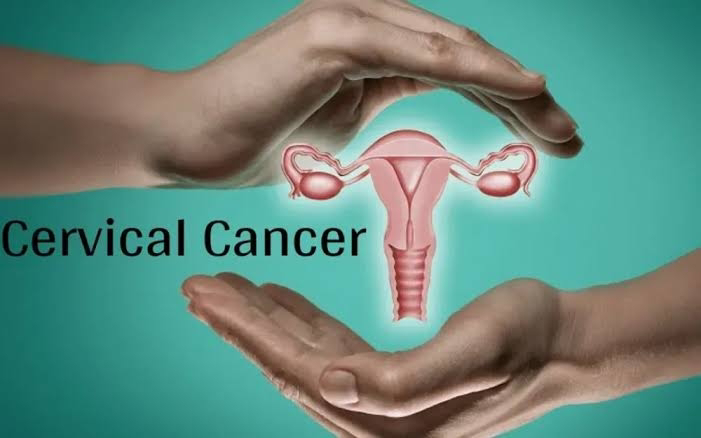By Chidinma Ewunonu-Aluko
Experts have identified smoking, early sexual activity, exposure to the Human Papillomavirus (HPV), and a history of multiple sexual partners as some of the major risk factors for cervical cancer.
The physicians, Dr Segun Adebayo and Dr Olufiade Oyerogba, made the assertion in separate interviews with the News Agency of Nigeria (NAN) on Thursday in Ibadan.
According to them, cervical cancer is a type of cancer that occurs in the cells of the cervix — the lower part of the uterus that connects to the vagina.
It usually develops slowly over time, with HPV — particularly types 16 and 18 , identified as the leading cause.
Adebayo, a Senior Registrar in the Department of Obstetrics and Gynaecology, University College Hospital (UCH), Ibadan, added that a weakened immune system was another risk factor.
“Having multiple sexual partners can expose an individual to HPV, which increases the risk of cervical cancer,” he said.
“Also, engaging in sexual activity at an early age, such as between 12 and 14, is a risk factor due to early exposure to the virus.”
On prevention, Adebayo emphasised that HPV vaccination was most effective when administered before sexual debut — ideally between the ages of 9 and 14.
He also recommended that both male and female children should be vaccinated.
“Females aged 25 can still be vaccinated after a negative screening result (Pap smear),” he added.
He advised postponing the age of first sexual intercourse, limiting the number of sexual partners, and avoiding high-risk sexual behaviours to reduce HPV transmission.
“While the effectiveness of condoms in preventing HPV is not fully established, consistent use is associated with a reduced risk of cervical cancer,” he noted.
“Male circumcision has also been shown to lower the risk of HPV transmission.”
Adebayo further recommended that women aged 25 and above undergo regular Pap smears.
“Older women who have stopped menstruating but notice blood stains should urgently visit the hospital for evaluation,” he warned.
Oyerogba, also a Senior Registrar in the Department of Obstetrics and Gynaecology at UCH, highlighted the importance of avoiding other risk factors such as delayed age at first pregnancy and untreated sexually transmitted infections.
She also advised against the use of hard drugs, which could weaken the immune system.
“Women should be screened periodically — at least once every three years — using the Pap smear test,” she said.
She also emphasised the importance of the HPV vaccine: “As a priority, HPV vaccines should be administered to all girls aged 9 to 14, preferably before sexual activity.
“Depending on immune status, one to three doses may be required.”
According to Oyerogba, some countries also vaccinate boys to reduce the overall prevalence of HPV and prevent HPV-related cancers in men.
“The Centers for Disease Control and Prevention (CDC) recommends routine HPV vaccination at ages 11 or 12 and for everyone through age 26 who was not previously vaccinated.
“Adults aged 27 to 45 should consult their healthcare providers about the potential benefits of the vaccine,” she added.
She stressed that “while the HPV vaccine prevents new infections, it does not treat existing ones.
“This is why it is most effective when given before any exposure to HPV. Regular screening remains essential, even after vaccination,” she said.
Oyerogba explained that cervical cancer often developed without symptoms in its early stages, making early detection critical.
As it progresses, signs may include: Abnormal vaginal bleeding (between periods, after sex, or after menopause), unusual vaginal discharge (watery, pink, or foul-smelling), and longer or heavier menstrual periods.
“The other signs are, difficulty or painful urination (due to cervical blockage of the kidneys), gastrointestinal symptoms, such as abdominal pain or rectal bleeding, and fatigue, a common symptom in advanced cancer.
She noted that treatment options vary based on factors such as the patient’s age, cancer stage, health status, and personal preferences.
“Treatment may include surgery, chemotherapy, immunotherapy, radiation therapy, or targeted therapy.”
Oyerogba called on the government to intensify awareness campaigns and support public hospitals in providing routine screening for early detection of cervical cancer before it becomes life-threatening.(NAN)









